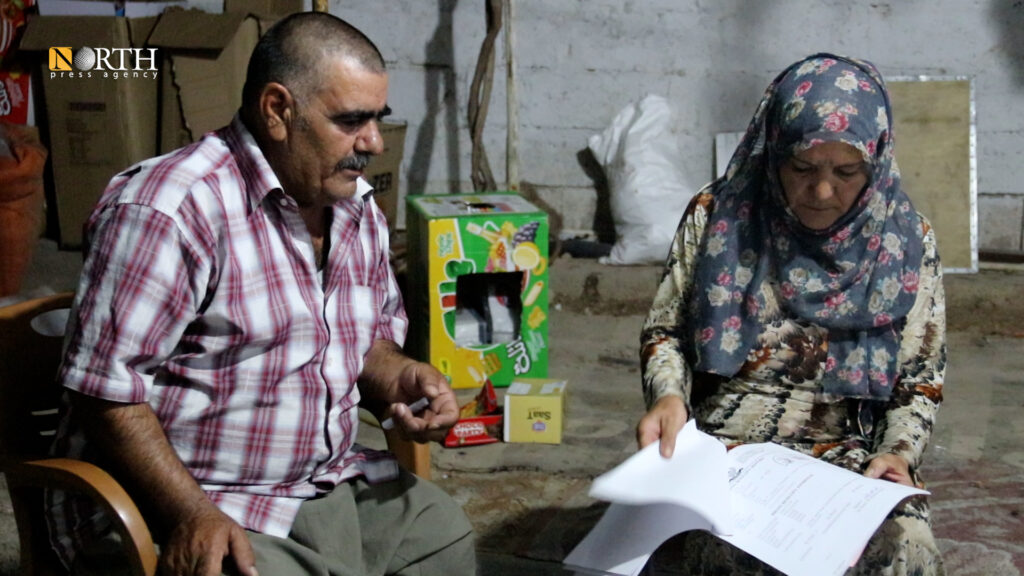Syrian family survives by working as waste pickers in KRI
By Suha Kamel
ERBIL, KRI, Iraq (North Press) – Fasih Tamr and his family who hail from Syria are forced to work in collecting cartoon and plastic waste from Qushtapa camp streets in Erbil in Kurdistan Region of Iraq (KRI) to secure livelihood amid lack of jobs and humanitarian aid.
The mother and her children work together to collect plastic bottles, glass jars, cardboard, scrap, and other materials they can gather. They bring them to their small garden inside the Qushtapa camp, where their father awaits them. He, in turn, collects them in his three-wheel truck and sells them.
Their conditions as refugees forced them to work as waste pickers to secure daily needs.
Since the beginning of the war in Syria in 2011, many Syrian families have sought refuge in the KRI. Some have succeeded in building a future for their families, while others continue to suffer the harshness of life in camps, especially with the decline in international aid to Syrian refugees and the rise in prices of goods and food supplies.

“We came to the KRI ten years ago, but in light of insufficient international aid to the Syrian refugees and limited job opportunities, we had no choice but to work as waste pickers to survive,” Fasih told North Press.
Fasih further added, “My family and I have started roaming stores and collecting used cartoon and plastic bottles. We collect them for three days to be sold later. Every 100 kilograms are sold for 7,000 IQD, knowing that we collect 60 Kilograms at best.”
Amina Tamr, said with smile of hope, “I have decided to help my husband, when the conditions got dire. We were unable even to obtain our daily bread, so I have started collecting and selling the used cartoons, despite the cruelty of this job, but anyway it makes small income for covering my husband’s medications and my children’s needs.”
The family hopes to find an opportunity to work in better conditions and for better income. The parents said that they were displaced from Hasakah Governorate, northeast Syria.

